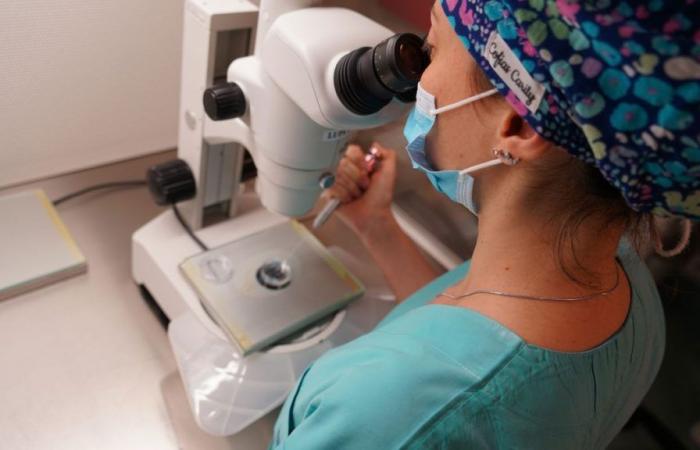When the search for a child is delayed, what answers does reproductive medicine have?
“Take care of fertility.” Under that premise and throughout June, Fertility Month is commemorated, dedicated to people who cannot conceive naturally or encounter difficulties along the way.
During this period, professionals who make up the reproductive medicine teams offer information, explain, debunk myths and present their experiences, demonstrating that science and medicine today have answers for almost all problems that may arise.
The desire for motherhood and fatherhood is one of the most powerful. When it appears it is difficult to ignore it. But the path is not always simple.
Currently, the search for pregnancy has been postponed compared to decades ago; however, women’s biology cannot simply adapt to sociocultural changes. And some difficulties also appear in men with the passage of time, although not with the same forcefulness as in the female gender.
The good news is that those who work in reproductive medicine have a lot of tools, low and high complexity techniques, and have greatly advanced their knowledge. In addition, there is an immeasurable contribution of technology. Without a doubt, the possibilities are many.
Embed – .Salud: What responses does medicine have when the search for a child is delayed?
Viviana Ventura, head of the Reproductive Medicine service at Grupo Gamma, places emphasis on fertility care. But what does he mean by this concept? It is an idea that is rooted in the need to have healthy lifestyle habits long before starting the path to motherhood and fatherhood. Today it is known that reaching adults with a healthy body and mind helps to live better and solve any problem that arises in the field of fertility with more chances.
“When we talk about care, that has to do with good habits and also with making a timely consultation with a professional,” says Ventura.
The objective of this talk with a specialist is “in women, check the ovarian reserve; in men, see how they are in general to begin the search for pregnancy, and in this way detect possible problems early to have better answers.” .
In the medical consultation, the couple, or the person who is in this situation, can ask their questions and listen to all the options that exist according to their age and health conditions. The psychological aspect is very important and sometimes fundamental. But for this to work, very precise knowledge and top-level techniques and apparatus are also needed to help achieve the precious objective.
Biochemist Valeria Paz, specialist in embryology, explains: “In the laboratory we have to imitate the reproductive part, what happens in a woman’s body.”.
So that there is no margin for error, to offer the most effective responses, it is essential that it be “a highly controlled environment since in this place the gametes have to unite for fertilization to occur”: For this, “we use incubators of latest generation, laminar flow cabinets to maintain sterility and ultra-tech microscopes to maintain, day by day, that embryonic development that begins in the laboratory and then is transferred and thus attempts to achieve the long-awaited pregnancy,” he says.
The fertility curve has moments when it begins to decline, and they tend to be earlier than people imagine. That is why professionals suggest that in addition to preventive consultations, a visit to a specialized center be made as soon as possible if pregnancy begins to be sought after 30 or 35 years of age. That is the time to detect problems that may later be more complex.
The cryopreservation of eggs that is talked about so much today also has its time limit. Sometimes women arrive too late to preserve their eggs. “This must be talked about because although a lot of progress has been made, there is a lack of knowledge among the population,” say the specialists.
“Fortunately, there are more and better techniques, even at advanced ages, but you have to know, for example, that In Argentina, the age limit for fertility treatment is set at 51 years for women.“, says Ventura.
Another aspect that the doctor mentioned is that of oncofertility. “We are seeing more cases of cancer in young people and people of reproductive age, so for both men and women it is very important that before starting treatment or surgery they can consult with fertility experts who can give them all the alternatives that exist. to be able, later, to go in search of that pregnancy, that child,” he remarks.
For those who make up Gamma’s Reproductive Medicine service, it is clear: “It is about trusting the professionals that we are there to accompany, that we constantly prepare and train to help them, to be close to that couple, to each of the people who begin this path (which may not be simple) but which often allows us to achieve that noble and great desire,” he concludes.






